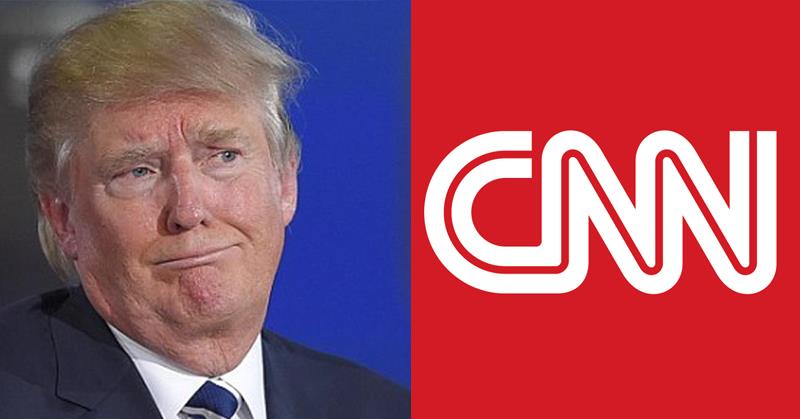
Week after week, the rift between President Donald J. Trump and the world of American corporate media grows increasingly wider. The occupant of the White House and the main U.S. TV networks and newspapers are on two separate planes, still interacting with the same iron fist they’ve had since the first months of the election campaign. Trump does not excuse those he calls the fake news media for their harsh criticism of him, nor for their heightened interest in the numerous contradictions that have distinguished his election promises from his earlier practical positions. Meanwhile, many sectors of the media show open resentment toward the president, who managed to upset the race to the White House despite the media’s open hostility and their patent endorsement of his adversary, Hillary Clinton.
Trump’s hostility toward the media, which at first was directed specifically at The New York Times, has, for several months, seemed focused on an open conflict with CNN. An example is Trump’s recent and by now famous Twitter video in which he knocks out World Wrestling Entertainment chairman Vince McMahon, whose face is replaced by the Atlanta broadcaster’s logo. Trump has contemptuously renamed CNN “FNN” for “Fake News Network,” which has, over several months, essentially ridden the wave of opposition toward the Republican leader. On most of its programs, the controversial politician’s policies are met with a repeated series of attacks. In the past, many of its reporters have made unmistakable personal attacks against the president. Zero Hedge has pointed out, for example, how the famous commentators Reza Aslan and Fareed Zakaria called Trump nothing but a “piece of shit.”
At the same time, Trump’s media worthiness has been a great opportunity for CNN to dramatically increase viewership. The year 2016, distinguished by the long and intense race to the White House, actually led the Atlanta broadcaster to record the largest number of viewers in its history. There is no doubt a significant percentage of CNN’s audience growth can be attributed to the ample coverage of the events related to Trump’s election campaign, which in turn benefited indirectly from the visibility provided by what is now considered one of his biggest media nemeses. CNN’s president, Jeffrey A. Zucker, has been accused by the spokesman of ex-Republican candidates Marco Rubio, Jeb Bush and Ted Cruz of distorting the Grand Old Party’s internal debate, guaranteeing – with the pretext of demonization at all costs – an audience for their main opponent. CNN has actively contributed to the creation of the Trump phenomenon, and this fact cannot be denied by Zucker’s “apologies,” issued in October through BuzzFeed, nor by the subsequent total war declared on the Trump administration and led mainly through the in-depth analysis and wide coverage of “Russiagate.” The harsh criticism of “Russiagate” by CNN producer John Bonifield has, in this sense, represented the definitive stalemate of what Fulvio Scaglione has described as a “scandal without evidence,” in which famous organizations like CNN and The New York Times are reduced to the role of muckrakers, until they later retreat in haste.*
CNN’s evident hypocrisy in its attitude toward Trump does not, however, diminish the magnitude of some obvious and noteworthy sins committed by the president against the corporate media. Basking in the enthusiasm of his triumph in the November election, in fact, Trump repeatedly mentioned that the whole class of “fake news media” would be pigeonholed as defeated and obsolete. Furthermore, by nominating Breitbart director Steve Bannon to his selective entourage, he seemed to be promoting an open battle between the mainstream media and the smaller-but-fiercer media complex he supports. Finally, reducing the problem of the media’s decline to its hostility toward Trump will certainly not benefit the president’s operation. In this sense, the fateful Twitter video will not add fuel to Trump’s fire, since it represents the ultimate manifestation of the personalization of a confrontation which, in the perception of the general public, could damage the credibility of both contenders in the long run.
*Editor’s note: Fulvio Scaglione is an Italian journalist and managing editor of Famiglia Cristiana.

Leave a Reply
You must be logged in to post a comment.